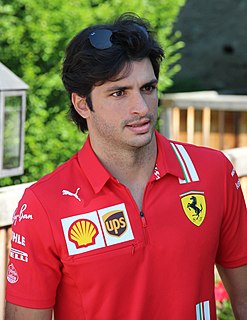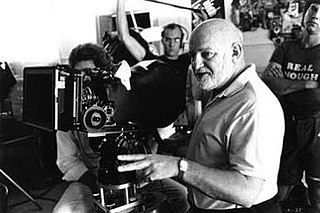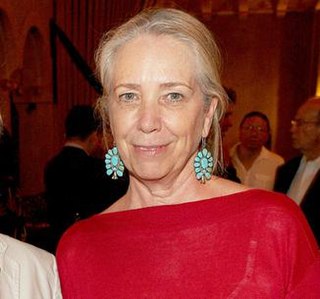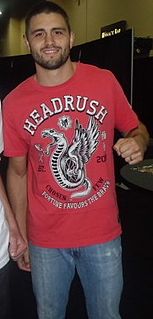A Quote by Andrew Lloyd Webber
We felt we had to know something of his back story. I don't think people in the cinema would just accept that he's there. I think we had to learn how he (got there).
Related Quotes
I think there will be great leaders emerging from the State of Mississippi. The people that have the experience to know and the people not interested in letting somebody pat you on the back and tell us "I think it is right." And it is very important for us not to accept a compromise and after I got back to Mississippi, people there said it was the most important step that had been taken.
Our awareness of time affects how we think and act. This is illustrated by the story about the clock in a restaurant window. It "had stopped a few minutes past noon. One day a friend asked the owner if he knew the clock was not running. 'Yes,' replied the restaurant man, 'but you would be surprised to know how many people look at that clock, think they are hungry, and come in to get something to eat."' If only there were some kind of divine timepiece that would arouse a spiritual hunger in people!
Jim had melodies as well as words. He didn't know how to play a chord on any instrument, but he had melodies in his head. To remember the lyrics he would think of melodies and then they would stay in his head. He had melodies and lyrics in his head, and he would sing them a cappella, and we would eke out the arrangements.
If children are given some real content, they can feel powerful with their own understanding of it. I think a movie like 'Indian in the Cupboard' will instruct them how to proceed as people. They can think about whether they would have done something the way a character did, how they would have felt about an event in the story.
Dustfinger inspected his reddened fingers and felt the taut skin. ‘He might tell me how my story ends,’ he murmured. Meggie looked at him in astonishment. ‘You mean you don’t know?’ Dustfinger smiled. Meggie still didn’t particularly like his smile. It seemed to appear only to hide something else. ‘What’s so unusual about that, princess?’ he asked quietly. ‘Do you know how your story ends?’ Meggie had no answer for that.
I think Stanley Tucci was having an affair with his mother. He had this odd quality that I haven't seen him ever get to do again in a movie that just made me think he's got some chops. He's got a strangeness to him, but he's also clearly been stuck in this role because of his looks and his type. He's been really pigeonholed, I felt.
I just started trying to figure out how to write [something] which was unlike anything anybody had ever seen, and once I felt like I had figured that out I tried to figure out what kind of book I could write that would be unlike anything anybody had ever seen. When I started writing A Million Little Pieces I felt like it was the right story with the style I had been looking for, and I just kept going.
I think you learn more about Donald Trump when you learn more about his wife Melania. She can say things, but it's more how much did you get to know her and believe the kind of person she is, that could be married successfully to him. So once you realize that there's something there, that there's substance and that she's got talents and abilities, you think "this is a very complex woman and not just a pretty face" and you know they have a pretty successful marriage and I think that speaks well of him.
Much as I admire Tolkien, I once again always felt like Gandalf should have stayed dead. That was such an incredible sequence in Fellowship of the Ring when he faces the Balrog on the Khazad-dûm and he falls into the gulf, and his last words are, "Fly, you fools." What power that had, how that grabbed me. And then he comes back as Gandalf the White, and if anything he's sort of improved. I never liked Gandalf the White as much as Gandalf the Grey, and I never liked him coming back. I think it would have been an even stronger story if Tolkien had left him dead.









































